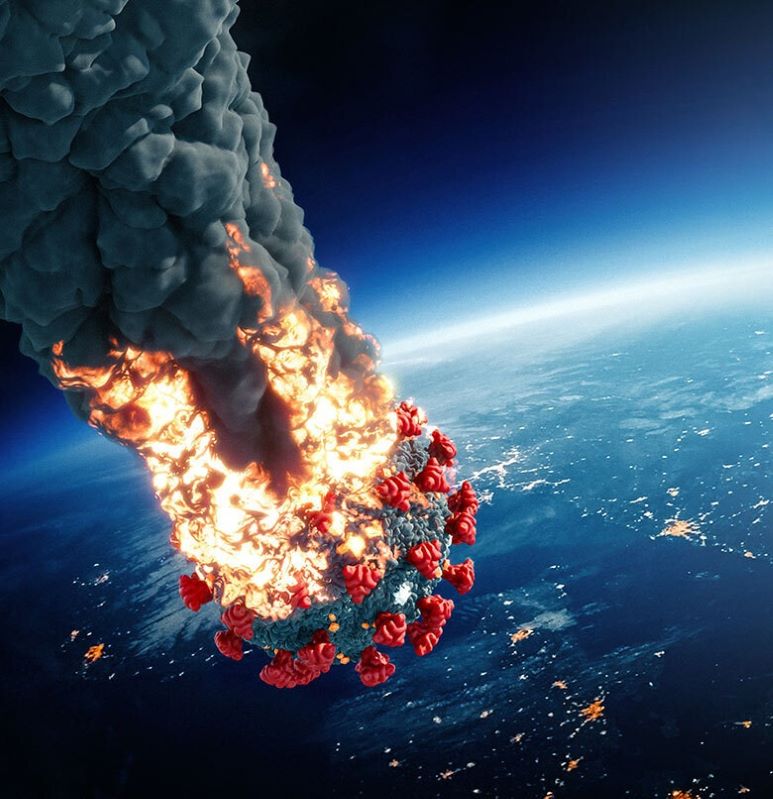Although virtually all economic sectors have come under duress in the era of the Covid-19 pandemic, the impact on the space industry has received comparatively little attention, despite the headwinds that it too has come to confront. Before the pandemic, the global space industry was growing at a brisk pace and was valued at more than $350 billion dollars overall, with the largest share of the space industry residing in the US in the form of both large and small enterprises.
Since the pandemic, a nuanced picture has emerged where some industry players are thriving but some are not. The largest US companies have survived largely intact because they are treated as essential by the government. These include launch providers such as ULA, SpaceX, and Blue Origin, who hold multiple contracts with NASA and the Defense Department, which allows them to continue work that maintains launch capabilities.
However, the smaller players have begun to face more testing circumstances due to the disappearance of the sources of funding and capital which they had earlier relied on. This is especially true for the smaller players that were undertaking unduly ambitious projects, such as creating space habitats, lunar mining, and space manufacturing.
These sorts of ground-breaking ideas were well-received earlier on by large private sources of capital, and many were able to secure funding despite their high risks and futurist orientation. Yet given the massive stock market crash after the realization of Covid-19’s lethal potential, many of the most far-flung ideas became too risky for venture capitalists seeking to consolidate their positions or weather the immediate financial shocks.
Those smaller companies which were less impacted owed their resilience to their focus on established markets such as rocket-construction and satellite-deployment, and to existing government contract work, such as from NASA or the Department of Defence.
A few prominent space companies have already succumbed, such as: Bigelow Aerospace, which dreamt of building habitats and hotels in outer orbit; and OneWeb, which dreamt of serving as an internet-from-space provider that filed for bankruptcy in late March. For such big private space players, the problem was also in part due to existing financial concerns.
However, the smaller players in the US (and global) space industry are characterized by very thin margins, high capital intensity, and high rates of project failure due to the uncertainty and loftiness surrounding their goals. Many are but a few years old and employ fewer than a 100 people in their workforces.
As the private market can no longer stomach such lofty goals during a period of economic paralysis, it is to the government that many small players have turned. However, under the current forms of regulation, such as the CARES Act, space businesses do not qualify for government assistance to US small businesses.
This is because of a legal stipulation that lumps private venture-backed space companies into the workforce of the larger venture capital firms (their funders). In other words, the current legal framework overcounts the number of employees in small space enterprises and disqualifies them from assistance.
In finance terminology, smaller space ventures are “high beta,” in that their value is disproportionately affected by movements in the stock market. As such, they outperform in the good times, when capital is yearning to chase ever more pioneering projects, but they underperform in the bad times, when stark real-world considerations override the dreams of these enterprises.
The larger established space enterprises are comparatively “low beta”, with a steady stream of cash flows deriving from government contracts. Even in late April, with the contagion of coronavirus still growing, NASA awarded three large companies with new contracts to develop lunar landers, including SpaceX, Blue Origin, and Dynetics.
Some companies are using the Covid-19 pandemic as an opportunity to showcase their offerings. Enterprises such as Maxar, Planet, and others have been providing earth imaging through their satellites to inform policymakers and public about the impact of the pandemic from above. Others are helping with communications and connectivity, as for telehealth and telemedicine.Still other companies seem to be seizing on new opportunities presented by the pandemic, such as the chance to pick up talented but laid off engineers, or purchasing petroleum related inputs at lowered prices.
As compared to the aviation industry, then, which has been entirely decimated around the world by the pandemic, the global space industry presents a more nuanced picture. Those with stable government contracts, particularly the larger enterprises, are continuing largely unscathed. The high beta small players with large ambitions, however, are facing a stark picture as venture funding dries up.
Yet as the fallout from the pandemic subsides, it is very likely that the appetite for spatial ambition shall return, and the smaller pioneering firms will have an occasion to pursue their creative and ambitious projects once again.
The writer is the Director for Economics and National Affairs at the Centre for Aerospace and Security Studies (CASS). He can be reached at cass.thinkers@gmail.com.




